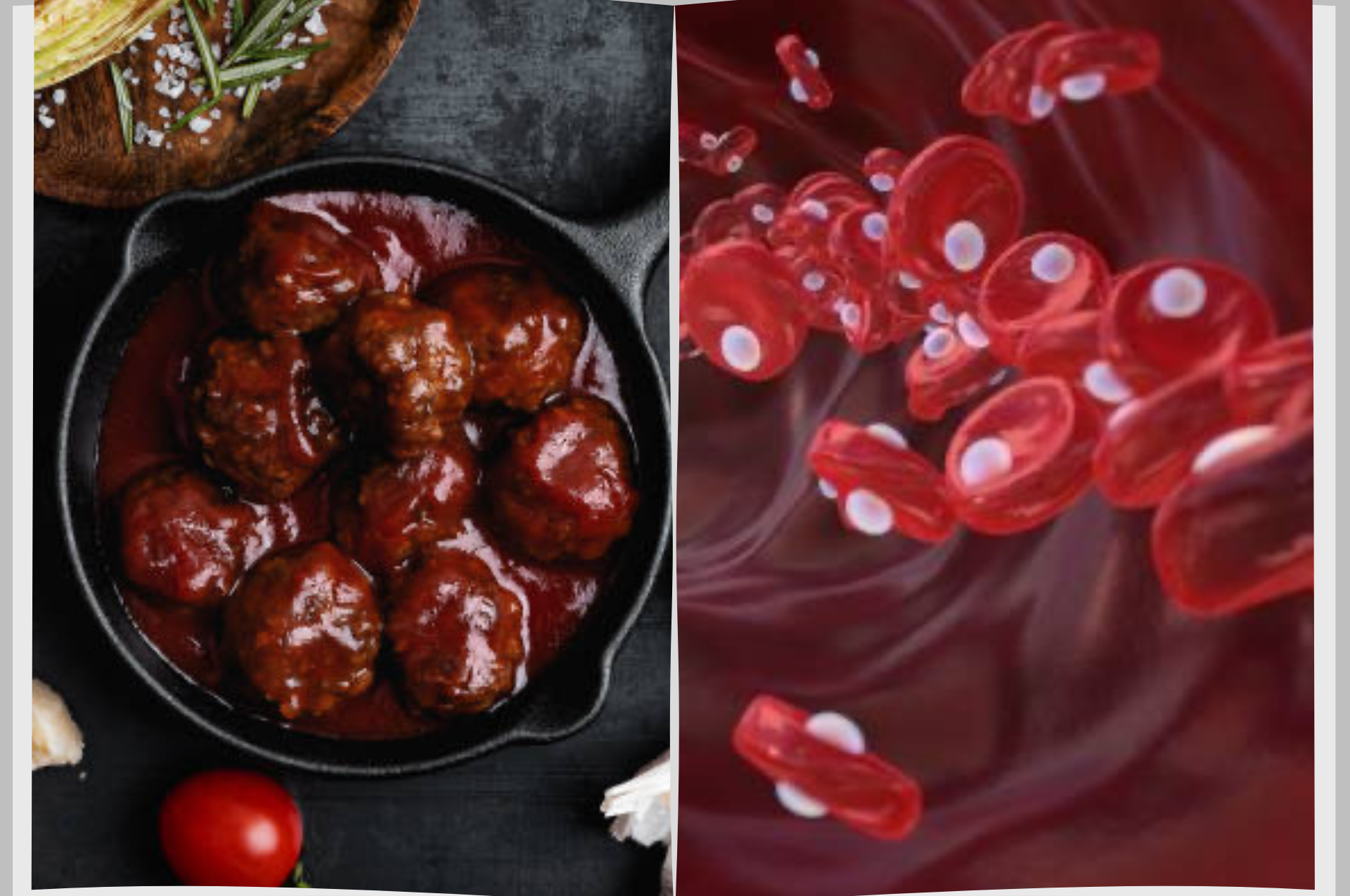Iron deficiency can be caused not just by a lack of iron, but by low ferritin (the protein responsible for storing iron).
Other causes can lead to a decrease in ferritin, not just anemia.
Iron is important for memory, cognition, immunity and oxygen in the blood. It also participates in the formation of thyroid hormones, dopamine and nerve impulses in neurons.
There is the condition of non-anemic iron deficiency, in which the iron in the blood test may be normal, but the ferritin is low, which can be a warning that the iron may be low.
Anemia occurs when hemoglobin (the content of red blood cells that carries iron) is low in the tests.
Infection and inflammation, for example, can cause ferritin levels to rise, which can give the false impression that iron is fine.
Iron in the diet
Iron in the diet can be found in heme form (found in plants, such as whole grains, nuts, seeds, vegetables, leafy greens and some meats) and non-heme iron (from animal sources, such as meat, poultry and shellfish).
Iron is stored by ferritin (in the liver, spleen, muscle tissue and bone marrow) and distributed to the body by transferrin. If anemia is suspected, the doctor will also check the levels of these indices.

Here are some causes of iron depletion, apart from diet:
Low iron intake in the diet
High levels of foods that compete with iron, such as oxalate and phytic acid.
According to the Journal of Nutrition and Metabolism, tannins – polyphenolic compounds found in romaine juice, tea, coffee, dark chocolate and wine – can hinder iron absorption.
Excessive fiber consumption has also been shown to hinder iron absorption, while turmeric, despite having polyphenols, has not been found to interfere with iron absorption in some studies.
Excessive supplementation
Supplementing calcium, magnesium and zinc can disrupt iron absorption.
It is believed that calcium absorption may occur during the initial entry of iron into the intestinal mucosa by inhibiting iron transport.
While magnesium and zinc, in the balance and maintenance of iron, may be mediated by absorption, circulation and regulation of the production of hepcidin (a peptide that regulates iron absorption in the intestine).
Gastrointestinal disorders
Gastrointestinal disorders can affect absorption by the intestine from its membrane into the bloodstream.
Gastrointestinal bleeding, ulcers and hemorrhoids can result in blood loss.
Bariatric surgery can affect the way iron is absorbed into the blood.
Intestinal diseases such as ulcerative colitis and Crohn’s disease.
Uterine problems
Blood loss during menstruation, when excessive due to fibroids and endometriosis, can decrease iron stores and ferritin.
Genetics
Some people with genetic mutations have difficulties storing iron, as well as vitamin B12 and folate, which are extremely important in the formation of red blood cells.
In the TMPRSS6 gene mutation, iron decreases in the bloodstream due to the lack of the matriptase-2 protein, which is responsible for regulating iron.
Hypochlorhydria
Hypochlorhydria is when the stomach produces too little acid.
The acid in the stomach helps to absorb iron, it transforms the iron we eat into a form that is more easily absorbed by the intestines.
In addition, a low acid stomach can lead to chronic intestinal infections, which will feed on the little iron that remains.
Tablets for heartburn and poor digestion (antacids) and omeprazole are useful in some cases, but in others, they neutralize the acid in the stomach, making the stomach less acidic and hindering the absorption of iron.
If you have low stomach acid, a combination of apple cider vinegar and betaine hydrochloride can reduce the acidity of your stomach and improve digestion.
Chronic infections
In these cases, the body itself limits the iron available because the good microbes appropriate the iron, leaving little for the bad microbes, so if you have an infection such as the Epstein Bar virus, you may have an iron deficiency.
Presence of bacteria
Bacteria such as Helicobacter pylori can also lead to iron and B12 deficiency anemia. This condition can lead to gastritis, ulcers and stomach atrophy.
When SIBO (uncontrolled bacterial growth in the small intestine) occurs, these bugs carry out fermentation in the area, which results in bloating, a large belly and gas retention, an uncomfortable situation and deficiencies in various nutrients.
Intracellular microorganisms may also be consuming your iron inside the cells, as in tuberculosis and Lyme disease.
Intestinal dysbiosis
If you have an intestinal problem, oral supplementation is often not the best solution.
In this case, it’s best to treat the root cause first, such as intestinal dysbiosis or gastritis, so it’s best to supplement with food and intravenously.
Food isn’t always to blame for a lack of iron
In summary, tiredness and excessive fatigue can be an indication of a lack of iron, however, it is necessary to investigate whether this does not signal other problems or whether it really is a nutritional deficiency.
In addition, when iron is supplemented, it is not always absorbed properly and, depending on the cause of the malabsorption, it will never be resolved if the primary problem is not treated.
Therefore, consult your doctor for a better diagnosis and resolution of anemia.
